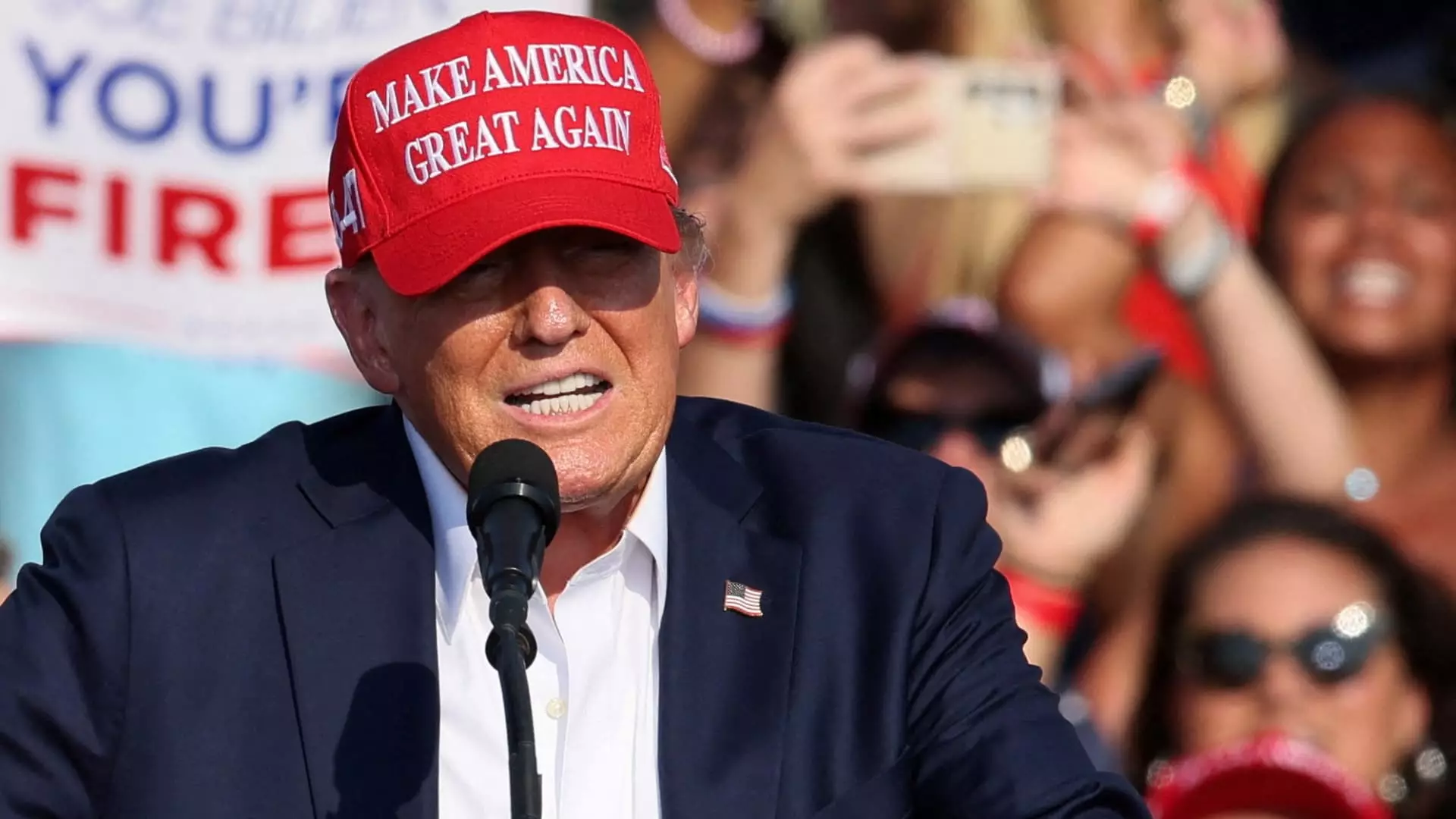The ongoing rivalry between the United States and China has positioned Taiwan as a focal point for global political discussions, especially in the context of defense and economic ties. As former President Donald Trump campaigns for a potential return to the White House, he has sparked debate with his recent assertion that Taiwan should financially contribute to its defense against any aggression from China. This perspective raises crucial questions about the responsibilities nations hold toward their allies, particularly in high-stakes scenarios like the growing tension surrounding Taiwan.
Trump’s Assertions and Their Implications
In a recent interview with Bloomberg Businessweek, Trump expressed the sentiment that Taiwan does not adequately compensate the U.S. for its defense commitments. His claim that “Taiwan should pay us for defense” echoes a business-like approach to international relations, likening America’s military support to an insurance policy. Such views suggest a transactional underpinning to foreign policy that divorces traditional alliances from mutual respect and shared values. Trump’s comments not only revel in a perception of American authority but also challenge Taiwan’s role in the global semiconductor landscape.
By indicating that Taiwan’s chip industry “took about 100% of our chip business,” he highlights the United States’ diminishing role in semiconductor manufacturing. Historically a leader in this domain, the U.S. has seen its influence wane in favor of Taiwanese companies like TSMC, which dominate high-tech chip production. This reality forces a reconsideration of how countries like Taiwan navigate their economic prowess alongside geopolitical pressures, particularly when facing potential threats from Beijing.
The Semiconductor Dependency Dilemma
Taiwan’s significance is further accentuated by its crucial role in the semiconductor industry, projected to account for a staggering 66% of the world’s most advanced chip production this year. This economic concentration poses strategic risks, especially if the geopolitical situation heightens. The looming specter of a Chinese invasion of Taiwan casts a shadow over global supply chains and raises profound questions about the future of technology industries across the world. Mark Liu, Chairman of TSMC, has warned of the operational risks should military action disrupt production, asserting that TSMC’s facilities would become “not operable” in such a scenario.
Thus, Trump’s comments should not only be viewed through a lens of political rhetoric but as an indication of genuine concerns surrounding national security and economic stability. The U.S. has increasingly recognized the implications of its semiconductor reliance on Taiwan, which is why there have been pushes under the Biden administration to incentivize domestic manufacturing. However, the rapid development of Taiwan’s tech sector is a testament to the inherent difficulties the U.S. faces in reclaiming its former status as a semiconductor powerhouse.
As geopolitical dynamics evolve, the U.S. and Taiwan will need to reassess their relationship and shared responsibilities. Trump’s statements offer a provocative lens into the often-commercial dimensions of defense strategies, emphasizing the need for a recalibrated alliance focused on mutual benefit rather than mere transactional interactions. The global reliance on Taiwan’s semiconductor dominance underscores the urgency for comprehensive diplomatic strategies that encompass economic cooperation, robust defense pacts, and sincere efforts to solidify the foundations of a shared future, free from coercive threats. As global events unfold, the world watches closely how these interactions will shape international relations and the balance of power.


Leave a Reply